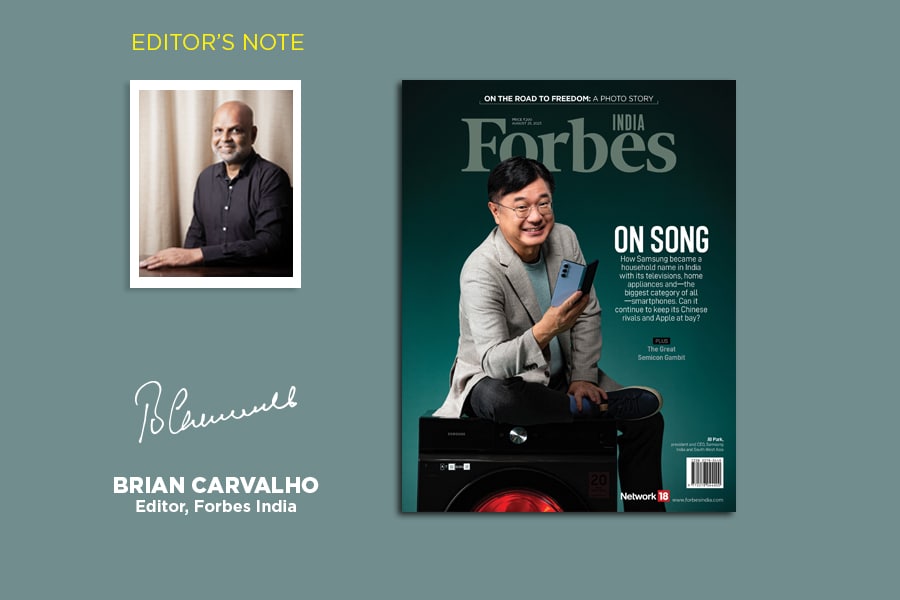Listen to the chimes of freedom
The pre-Independence Swadeshi movement still resonates, as India tries to cut reliance on imports



Philosophers and writers tend to look at history through extreme lenses—from cynicism to sincerity. “History is the study of all the world’s crime," reckoned Voltaire. Napoleon further muddied the waters when he declared that “history is a set of lies, agreed upon".
And then, there are those who believe that for a true record of the past there has to be an honest effort. Greek writer Lucian is credited with: “The good historian… must be fearless, uncorrupted, free, the friend of truth and of liberty." Millennia later, BR Ambedkar spoke in a similar vein: “A historian ought to be exact, sincere and impartial, free from passion, unbiased by interest, fear, resentment or affectation."
Suffice it to say that records of history are an (often gallant) effort to chronicle the chaotic, or, as one historian put it, “a jangle of accidents, blunders, surprises and absurdities".
The 200-odd years leading up to India’s Independence is all of that, and more. It’s a saga of how a commercial enterprise transformed into a plundering, colonial superpower how traders in spices, tea, silk, cotton and opium gained military muscle by recruiting tens of thousands of Indian soldiers, looted Bengal and took over almost the entire subcontinent how a bunch of Indians benefited from Western education and got exposed to the ideas of liberty, equality, democracy and rationality and how these educated Indians sparked the movement for Independence from colonial oppression.
In this fortnight’s special edition to commemorate India’s 76th year of Independence, Madhu Kapparath, Forbes India’s photojournalist and raconteur par excellence, takes us on a long, vivid journey that begins in 1600. That’s when the East India Company received a royal charter, with which came monopoly privileges, for 15 years on all trade with the East Indies (Asia and the Pacific). Kapparath captures the transition of merchants to marauders, boardrooms to war rooms, and company directors to military chieftains.
The story twists and turns when Indians—from the Presidencies of Bengal and Bombay to the North-West Provinces and the Punjab—show flashes of unity. Kapparath captures landmark moments—from the Sepoy Mutiny of 1857 to the passing of the Indian Independence Act 1947—that led to freedom (and Partition).
A key element in the struggle for Independence was the ‘swadeshi’ movement, boycotting foreign-made, especially British, goods. The Make-In-India movement is still relevant, albeit in a different context as India today seeks to minimise imports across sectors. Semiconductors is one such industry that has been in the arc lights of late, as a clutch of multinationals—buoyed by government subsidies—earmarks investments for assembly, design, research and development, and eventually manufacturing. So how long will it take to develop a made-in-India chip for the world’s smartphones, televisions, cars and rockets? For an answer, don’t miss Naandika Tripathi’s ‘Chasing the Semiconductor Dream’.
The Forbes India cover story is on a global electronics giant that also makes semiconductors. In India since the mid-’90s, Samsung of South Korea has a presence in almost every Indian home with its televisions, refrigerators, air-conditioners, washing machines and, of course, smartphones. It’s the last category that is most competitive, where Samsung has dominated over the past decade. It still does, although Chinese rivals like Vivo aren’t far behind. But as Samsung India (and South West Asia) head Jongbum Park tells Rajiv Singh, Vivo may be a big rival but is also one of Samsung’s biggest customers. Don’t miss Singh’s ‘Above The Fold’.
Best,
Brian Carvalho
Editor, Forbes India
Email: Brian.Carvalho@nw18.com
Twitter ID: @Brianc_Ed
First Published: Aug 14, 2023, 12:09
Subscribe Now